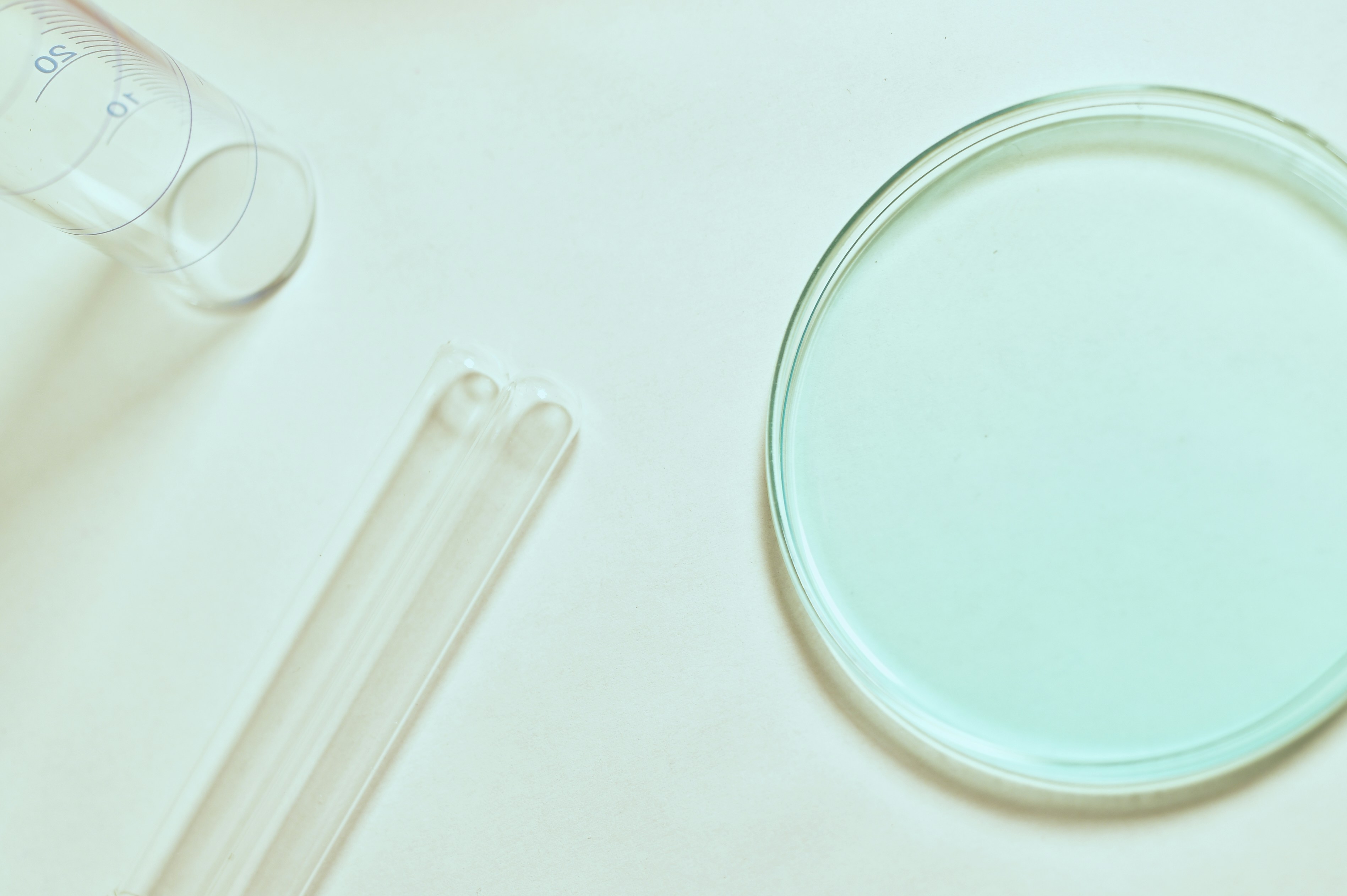Download the Felix App
Earn reward, visit our shop and get exclusive offers on the app
Download nowEarn reward, visit our shop and get exclusive offers on the app
Download nowPut your health first in 2026 with free visits on all categories, and $200 off longevity testing.
Download nowPut your health first in 2026 with free visits on all categories, and $200 off longevity testing.
Download now
AI-generated summaries may be inaccurate and do not constitute medical advice. Third-party AI tools are not under Felix's control, and your use of them is at your own risk.
Identifying and finding a way to control STIs is something that most people recognize is important when they believe they’ve been exposed to an infection, but what happens when you don’t treat an STI?
This page will explore some of the chronic health issues that STIs lead to, as well as some of the long-term effects STIs may cause if they’re left untreated.
There are many ways that many STIs can cause health issues, if you don’t realize that you have them, or if you leave them untreated indefinitely. This is particularly relevant for certain types of STIs like Gonorrhea, Chlamydia, HIV, and Syphilis.
While not all of these STIs have a cure, some of them (i.e., Gonorrhea and Chlamydia) can be managed if they’re treated. These STIs can cause long-term effects that will have a major impact on your health and quality of life.
This is because these infections can continue to grow, spread, and intensify over time, moving into different parts of your body or beginning to affect the function of certain essential organs, like your heart and brain.
One of the biggest complications of Gonorrhea or Chlamydia is the potential for Pelvic Inflammatory Disease (PID) in people with a uterus. This condition causes an infection in your fallopian tubes, uterus, or ovaries, which can cause unpleasant side effects, as:
The most important thing to remember here is that if you don’t treat PID from Gonorrhea or Chlamydia, you run the risk of having additional complications, like infertility, which can drastically impact your plans for the future.
When you have Gonorrhea or Chlamydia, PID can develop when a certain type of bacteria spreads from your vagina into your reproductive organs.
It’s important to note that the bacteria normally found in your vagina can also cause PID in some rare cases, but in many cases, Gonorrhea or Chlamydia with PID is spread through unprotected sex with someone carrying the specific bacteria.
If you do contract PID with Gonorrhea or Chlamydia may also be at a higher risk of contracting HIV until the infection is treated.
SIDE NOTE: You should never feel as though you’ve done something wrong if you experience PID. This is a very common STI affecting more than a 100,000 people across Canada each year.

Unfortunately, managing STIs that cause vulvar pain or abdominal pain can be challenging, because your doctor may need to prescribe antibiotics in order to provide you with relief from symptoms.
The best way to manage complications of Gonorrhea or Chlamydia, like discomfort, discharge, or pain is to get a proper diagnosis, so that your healthcare team can determine the best course of action for your condition.
Felix is happy to help you take the first essential step on this journey to better health! We can help you to get lab testing done and provide your team with a way to accurately diagnose your condition.
To get started today, all you need to do is complete a short online assessment, which you can fill out at your convenience. One of our practitioners will typically get back to your request within 24 hours.
There are a few conditions that affect men and can cause complications like pain in the testicles. These STIs include both Gonorrhea and Chlamydia.
These are also the same types of STIs that can cause vulvar pain in women; especially those at high risk for the Pelvic Inflammatory Disease (PID) STD, due to complications from Gonorrhea or Chlamydia going untreated.
Another major long-term effect of these STIs is that when left untreated, these STIs can cause HIV exposure risks to increase. HIV is an incurable condition if contracted, so it’s a risk that should be taken very seriously, particularly if you believe you’re even slightly at risk of exposure.
One of the major concerns in regards to STIs causing chronic health issues is that certain types of STIs can cause cancer risks to increase. The STIs with long-term effects like this include:
The types of cancer that these STIs can cause include:
If you believe that you could be exposed to an STI that can cause cancer, let your healthcare team know immediately so that you can help your doctor provide the most effective treatments and control plan for your needs.
Due to the potential long-term impacts that untreated STIs can have on your body, it’s essential that you identify STIs as soon as possible after exposure, so that you can begin treatment immediately.
This will help reduce the opportunity for long-term effects from STIs to occur, as well as prevent these infections from being spread to your partner(s) unintentionally.
Even if you don’t know that you’ve been exposed to STI that causes chronic health issues, it’s a good idea to get tested regularly; especially if you know that you’re at risk for exposure to certain STDs.
Getting checked every 3-6 months is a great way to give you and your partner the peace of mind that both of your well-being are protected, so that you can continue enjoying sexual activities on your terms.
Felix can assist you with accessing STI testing, which you can use to help your doctor quickly identify and diagnose potential exposures. All you need to do is complete a short assessment to get started talking to a practitioner today.

Yes, Gonorrhea can cause PID. The STD Pelvic Inflammatory Disease (PID) is one of the potential complications of getting a Gonorrhea infection. This is of particular concern for those who don’t have any symptoms and the infection is left untreated.
Periodic testing (every 3-6 months) is important for protecting you and your partner(s) from potential exposure to Gonorrhea that can cause PID symptoms (i.e., abdominal pain, vaginal discharge, and even infertility).
Yes, some STIs can lead to chronic pelvic pain. In fact, this is one of the long-term effects of both Gonorrhea and Chlamydia, if they’re left untreated.
By the same token, both Gonorrhea and Chlamydia can cause scarring issues when they’re uncontrolled for long periods of time. This is because Pelvic Inflammatory Disease (PID) can cause scarring over time, and PID is a known complication of both Chlamydia and Gonorrhea.
Yes, one of the most damaging long-term effects of STIs that are untreated is potential infertility, which cannot be cured once it occurs. This permanent condition can drastically impact your plans for the future, and by association, quality of life for both you and your partner.
In addition to this, some STIs can cause cancer in the reproductive organs of both men and women. STDs can also cause UTI and HIV risks to increase, both of which can have a major (but very different) impact on your health and happiness.
Finally, it’s important to remember that there are some STDs which cause pain in testicle areas, and some STDs that cause vulvar pain. Both of these STI-related chronic health issues can make it nearly impossible to enjoy sexual activities without discomfort.
SIDE NOTE: Some STIs won’t have any symptoms at all, and these ‘silent STIs’ are just as dangerous to your long-term health. They’re also much easier to spread and harder to identify/diagnose. This is why periodic testing every 3-6 months is very important.
Yes, there are permanent health issues that can arise from complications of Gonorrhea or Chlamydia. This is particularly relevant for people who have had these infections for a longer period of time, but have yet to seek any treatment to control them.
Some potential permanent complications of Chlamydia and Gonorrhea include:
Certain long-term effects of STIs that cause chronic health issues need time to develop, which requires the virus or bacteria to be left alone long enough to grow/spread.
By seeking early identification and treatment for STIs, you can reduce the opportunity for these long-term issues to arise. Your healthcare team can help guide you towards whatever steps are necessary to control your condition, while also monitoring for any potential long-term damage, so that it can be addressed as quickly as possible if it does occur.
STIs can’t cause UTIs directly, but they can increase the risks of them occurring, through the damage that uncontrolled STIs (i.e., Gonorrhea, Chlamydia, etc.), can do to your reproductive and genital organs.
However, STIs can cause blood in urine, in some cases. This is due to inflammation or infection within the urinary tract or urethra. The STIs which cause blood in urine include Gonorrhea and Chlamydia, especially when left untreated for longer periods of time.
Blood in urine from an STI can be an indication of damage, which should be discussed immediately with your healthcare team if it occurs.
STIs can’t cause HIV or cancer directly, but there are certain STIs that can increase your risks of these two additional conditions occurring.
Cancer risks are increased for certain types (specifically reproductive or genital-based cancers), alongside other chronic STI health problems, such as infertility and Pelvic Inflammatory Disease (PID).
With many STIs, if you become infected with one virus or bacteria, it makes it easier for other STIs to then infect your system. HIV is of particular concern, because not only is it easier to become exposed if you already have another STI, but it’s incurable once contracted.
There are a variety of long-term effects of the STIs Chlamydia and Gonorrhea, which may occur when these infections are left uncontrolled indefinitely. Some of the potential STI-related chronic health issues include:
If you believe you could be exposed to any STIs, you should take the time to get checked, so that you can give your healthcare team the necessary information to diagnose and begin treating your infection, before you begin to experience these types of issues.
The best way to manage chronic pelvic pain from STIs is to begin treatment as soon as possible after receiving your diagnosis.
Although some damage may have occurred, getting proper treatment to control your STI is essential to minimizing or removing your symptoms, including chronic pain.
In addition to seeking essential treatments for STI control, pelvic pain is something that can have a major impact on your daily quality of life. If you’re dealing with a lot of chronic pain throughout your treatment cycle, be sure to talk to your healthcare team about what options are available to help you manage your pain levels.
Although STIs don’t cause ectopic pregnancies directly, when they’re left untreated they may increase your risks of this condition occurring.
Certain STIs (i.e., Gonorrhea and Chlamydia) cause inflammation, which over time may damage and scar your fallopian tubes. In turn, this can become a hindrance to a fertilized egg’s trip through your fallopian tubes to your uterus.
If you are trying to conceive, it may be a good idea to proactively get tested to ensure that you don’t have any STIs that could be making it more difficult for you to become pregnant.
In women, STIs (i.e., Gonorrhea and Chlamydia) can lead to infertility in the same way that they can increase the risks for potential ectopic pregnancies to occur - due to inflammation, damage, and scarring within the fallopian tubes.
Eventually, if these STIs are left untreated, the damage/scarring to fallopian tubes can become so severe that women become infertile.
Conversely, for men, these STIs can cause infertility due to the inflammation and damage that they may cause to their reproductive organs (i.e., penis, testicles, urethra, etc.).
Eventually, this can cause things like Erectile Dysfunction (ED), which makes it difficult or impossible for someone to get or maintain an erection long enough to perform sexual activities. It can also lead to outright infertility, similar to women.
Yes, some STIs can actually pass to children during delivery.
This is especially pertinent if you’re opting for a natural birth, where the infant will pass through the birth canal and out the vagina, potentially causing direct contact with STI affected areas.
Not only can this cause complications for newly born children, but certain STIs can have long-term effects on children, impacting both their health and quality of life throughout their early childhood.
Yes, STIs can cause pelvic pain in men, similarly to how these same symptoms arise in infected women.
Men may notice pain in different areas than women, due to the differences in genitals. However, the levels of pain and importance of treatment are the same for both men and women.
Men with STDs may have pain in testicles, or in the penile area directly. Testicle pain may feel more deep-seated and radiate throughout the pelvic region, where penile pain may be more painful during attempted sexual activities or urinating.

No one wants to have an STI, that’s just a fact of life. However, many people live happily with STIs, even if they aren’t able to be cured. It’s also vital to remember that STIs are very common and most are very treatable.
For people that feel alone or judged because they’ve been exposed to an STI, it can begin to impact not only their sex life and quality of daily living, but it can also begin to have a very detrimental effect on their mental health too.
Depression, anxiety, and guilt are common mental health issues faced by those who’ve contracted an STI. It’s important to remember that if this happens to you - you’re not alone!
Felix is committed to helping out patients find the guidance and support they need to take back control of their health and well-being, so if you’re feeling like your mental health is being impacted by an STI exposure, be sure to let your practitioner know.
They may be able to suggest some resources that can help you address and manage these issues, before they have a long-lasting impact on your quality of life.
Yes, there are certain vaccines that are available, which can drastically reduce your chances of contracting an STI, even if you’re exposed to it. Some STI vaccines that are available in Canada include:
If you haven’t yet received a vaccine for any of these STIs, you should talk to your healthcare team about how you can go about requisitioning these vaccines. This can give yourself the peace of mind that you’re largely protected from infection from these STIs, at least.
It’s recommended that if you believe you could be at risk of exposure to any STIs, you should request testing every 3-6 months. If you would like to explore STI testing with Felix, complete a short assessment to get started with a practitioner today.
Not only will this allow you to keep an eye on your health to ensure no unintentional infections have taken place, but it will allow you to seek treatment immediately if an exposure does take place, so that you can minimize the chances of spreading it to your partner(s).
Medically reviewed by
References




























